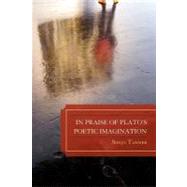In Praise of Plato's Poetic Imagination
, by Tanner, Sonja- ISBN: 9780739143391 | 0739143395
- Cover: Paperback
- Copyright: 9/1/2011
Plato has often been read as denigrating the cognitive and ethical value of poetry. In his dialogues, the faculty that corresponds to the poetic'¨ ;the imagination'¨ ;is located at the lowest level of human intelligence, and so, it is furthest from true understanding. Simultaneously, Platonic dialogues violate Plato's own alleged prohibitions against quoting and imitating poets, and much of the writing in the dialogues is poetic. All too often, the voluminous literature on Plato dismisses Plato's poetic formulations as merely the unintended contradictions of an otherwise meticulous author. This book asks whether such a reading, found virtually everywhere in the literature, does not miss the mark. Given that, throughout the dialogues, Plato formulates ideas so precisely, utilizing carefully crafted images and structures, is it possible that his flagrant and performative poetics are mere mistakes? Or, is it possible that commentators interpret the dialogues in this way because they have missed something truly significant in Plato's understanding of the cognitive and ethical dimensions of human existence? Keeping this possibility in mind, should we not ask what the poetic and creative arts do for philosophical understanding? How do they contribute to true understanding? This book approaches this question by analyzing the role of the imagination in Platonic dialogues. It argues that critiquing poetry by poetic means, just as arguing against mimÍsis mimetically in the Republic, or writing against the written word in the Phaedrus, constitute performative contradictions that bear significant philosophical meaning upon further examination. The book re-examines the nearly universal assumptions in the literature that judge Plato's poetics to be an oversight or an error that must be corrected by other, more serious and important ideas about the acquisition of true understanding. Thus, the book begins by examining dialectic, and suggests that the elusive examples of dialectic referred to in the divided line are the dialo






